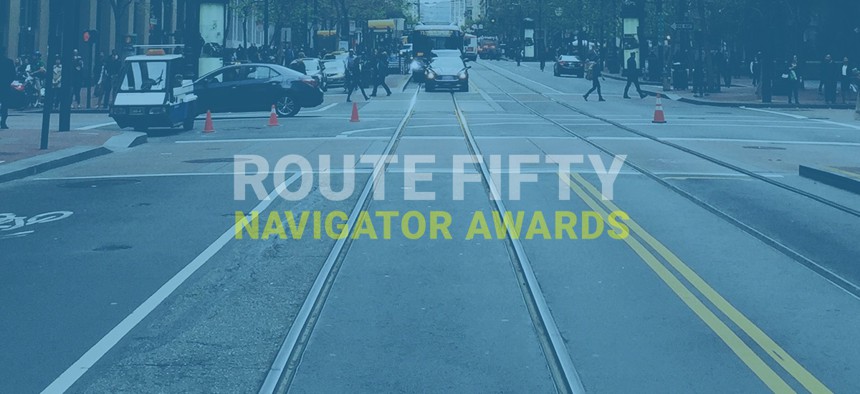Navigator Award Finalist: Ed Blayney, Innovation Project Manager, Louisville Metro Government

Crowdsourcing data on internet connectivity may seem like an odd municipal exercise, but it’s proven to be a valuable tool in Louisville.
This is the 32nd in a series of profiles on the 50 finalists for Route Fifty’s Navigator Awards program. The first 10 finalists were from the Government Allies and Cross-Sector Partners category. Finalists 11-20 were from the Agency and Department Leadership category. Finalists 21-30 were from the Executive Leadership category. Finalists 31-40 were from the Next Generation category. Finalists 41-50 are from the Data and IT Innovators category. Explore our complete list of 50 finalists.
Among municipalities, the Louisville Metro government is known as an engine of innovation. Transforming government through improvements in performance and service delivery has been a priority for Mayor Greg Fischer and his accomplished team, which includes folks like Daro Mott, who recently rejoined the Louisville Metro Government as chief of performance improvement after a stint in the government of Cuyahoga County, Ohio.
Those efforts have resulted in the creation of a highly regarded municipal analytics operation, LouieStat, and an open data portal, among other projects spearheaded by Louisville’s Office of Performance Improvement and Innovation and collaborations with organizations like Code for America, What Works Cities and others.
An important member of Louisville’s engine of innovation is Ed Blayney, who is “a very high energy, hard driving agent of change in the public sector,” according to a Navigator Award nomination submission in the Next Generation category.
While Blayney, an innovation project manager, has worked on a variety of the great initiatives that has helped to set Louisville apart from many of its peer jurisdictions, there’s one digital effort in particular that Route Fifty would like to highlight—an important tool that could be replicated elsewhere.
During a hackathon that Blayney helped organize, a great idea rose to the top—an idea that led to the creation of SpeedUpLouisville.com.
When trying to tackle challenges related to digital inclusivity, local governments are faced with an information gap regarding internet speeds. Specific data on internet connectivity—which can give policymakers a better picture of the areas in a city that may suffer from lagging digital infrastructure and gaps in service—is held by private companies, who aren’t obligated to share much of that information with those policymakers or the public at large.
But the government can ask internet customers to share information about the quality of their internet connection. And they can do that at SpeedUpLouisville.com, plus explore the local geography of internet access, compare speeds of access offered through AT&T and Time Warner Cable and otherwise get a better understanding of the landscape of connectivity.
Thus far, more than 3,650 speed tests have been submitted through the site—and the data is fascinating to sift through.
SpeedUpLouisville.com a great idea and one that wouldn’t have been possible if it weren’t for the hard-working members of the Louisville Office of Performance Improvement and Innovation, including Blayney, who we’re happy to include as one of our 50 Navigator Award finalists.
Michael Grass is Executive Editor of Government Executive’s Route Fifty and is based in Seattle.
NEXT STORY: NYC looks to tech to improve pedestrian safety






